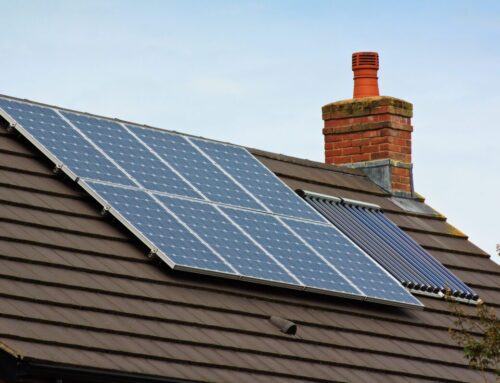Solar power makes up over 1.8% of electricity generation in the United States, and that amount is only continuing to increase. With the cost of installing solar panels going down every year, coupled with incentives and solar programs, more and more people are turning to solar for home power. If you’re curious about installing solar panels on your property or if you want to learn more about how a solar program can benefit you, here is what you need to know.
How Does Solar Work?
Photovoltaics — PV — is possibly the most well-known technology when it comes to solar power. These flat panels work by absorbing photons from the sun into cells which then create an electric field. The electricity produced via this interaction can then be used immediately or stored in batteries for later use. Some solar programs will even allow homeowners to sell excess stored power to power companies for credit, but we’ll touch more on that later.
Is Your Home Appropriate for Solar?
While solar panels are designed to work in all climates, there are some situations that make using them difficult. For instance, if your roof is older or if it has a lot of tree cover, rooftop panels may not be the best option. If you’re unsure, you can have a solar panel company come and take a look at your roof to see what your options would be.
In the event that your roof is found to be unsuitable, you still have options. Community solar programs allow multiple people to benefit from solar energy by having panels installed in an off-site area. The cost of this installation can be divided by the number of participants who can buy into the shared solar system depending on their budgets.
How Much Power Does Solar Generate?
While the exact amount can fluctuate depending on how much direct sunlight your panels get, you can get a general idea by using the PVWatts Calculator, a handy tool developed by the National Renewable Energy Laboratory. Similarly, a professional solar company can give you a more concrete estimate after an inspection.
Tax Breaks and Incentives
To find out what incentives and tax breaks are available to you, DSIRE can be used. Simply enter your zip code to learn what exactly you can expect once you install solar panels on your property. Your local installer can also help you understand the specifics of these incentives, as well as how you can claim them.
Savings with Solar
As mentioned above, solar has the potential to save you money and earn you rebates from your electrical company. While the exact amount you’ll save by using solar will depend on how much you’re able to generate, you can compare your rates with the National Utility Rate Database. You can also call your utility company and ask about how much they compensate for the solar you sell back into the grid. However, by using energy-saving appliances and keeping your energy use low overall, you can stand to save quite a bit if you’re only power on necessities.
Getting an Inspection
If your interested in learning more about how you can specifically benefit from solar programs, reach out to your local installation company and see what options they can provide. With rising savings and lower costs, never has there been a better time to turn to solar.


 Solar Company
Solar Company 



